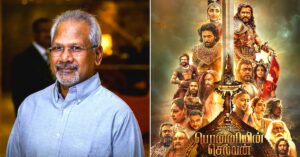Taking Tuitions to Fund His Dreams, How Jitendra Kumar Went From IIT to ‘Panchayat’
Not many may know Jitendra Kumar—a 30-year-old actor from Khairthal, Rajasthan, of the Shubh Mangal Zyada Saavdhan fame—was initially an IITian on his way to become a civil engineer.
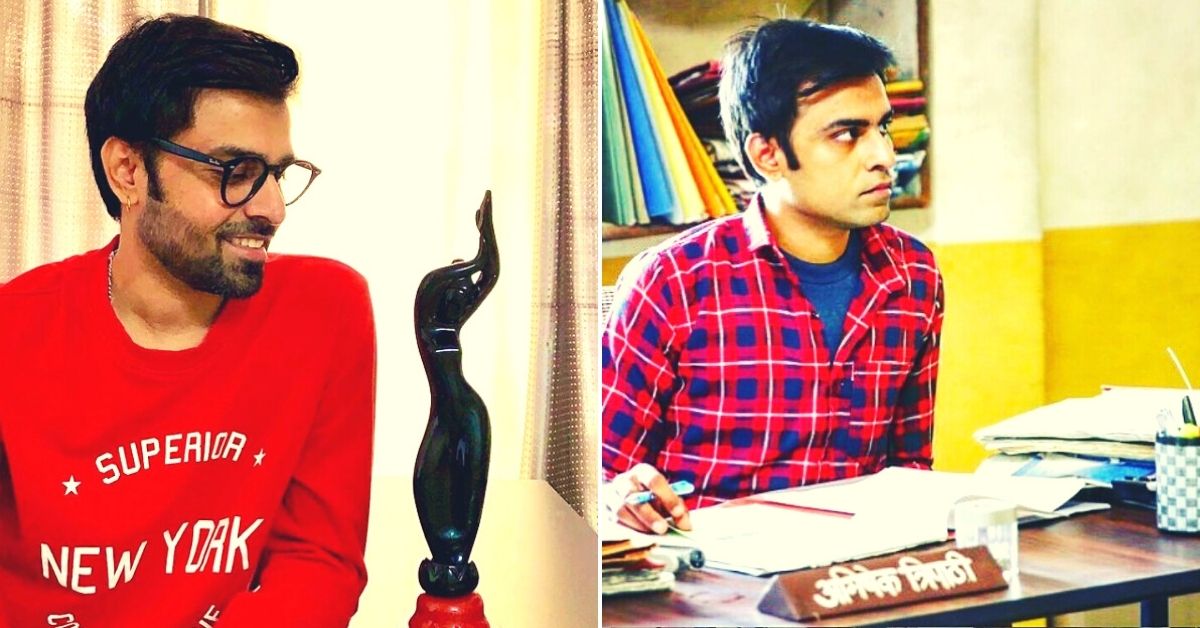
The past decade has seen the emergence of a new breed of graduates from the prestigious Indian Institute of Technology (IIT). These are personalities who have given up their middle-class dollar dreams, fat paychecks from established multinational corporations and, possibly, a career in the civil services for creating their own niche in the professional world.
Whether it’s establishing their startups or pursuing a passion that is wildly divergent from the courses they pursued in college, these graduates usually don’t have the safety net of a large family business to fall back on in the event they fail. What holds them together is their sheer force of passion, character and perseverance.
Jitendra Kumar, a 30-year-old actor from the small town of Khairthal in Alwar district, Rajasthan, is one such personality. Last month, the IIT-Kharagpur graduate won a Filmfare OTT award in the category of Best Actor Comedy Series (Male) for his performance in the Amazon Prime series Panchayat.
From viral comedy sketches on YouTube in the early 2010s to mainstream recognition today with lead roles in films like the Ayushmann Khurrana-starrer Shubh Mangal Zyada Saavdhan (2020), Jitendra has come a long way.
Nonetheless, his journey till this moment was everything but linear.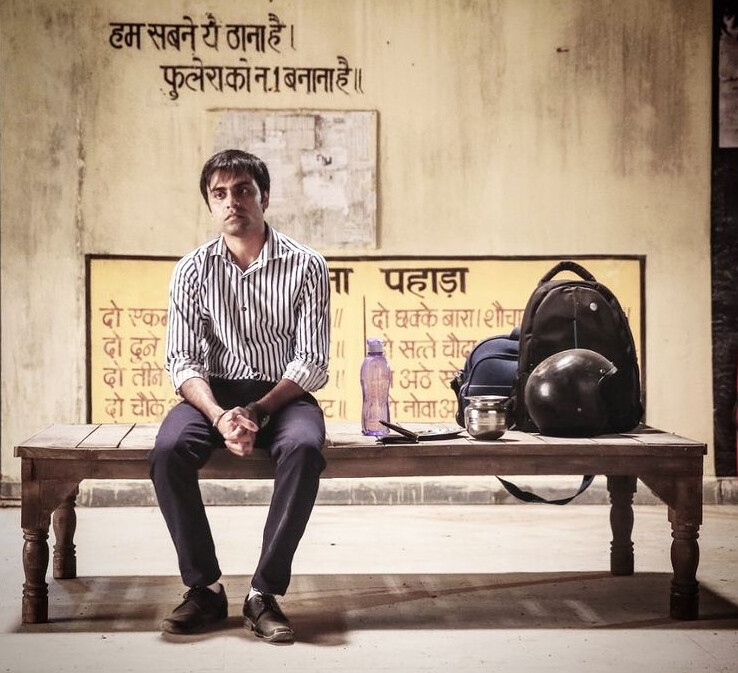
A Passion For Acting
As a child growing up in Khairthal, he performed in the local Ramlila, which is otherwise known as the dramatic folk re-enactment of Lord Rama according to the ancient Hindu epic Ramayana. But it was during his time at IIT-Kharagpur when he started to take acting more seriously.
“While I was pursuing my B.Tech in civil engineering, I began actively participating in the college theatre scene. It was the first time I encountered a proper stage, lights, script and everything else. As part of the Hindi Dramatic Society, we did plays by Vijay Tendulkar, Rabindranath Tagore and Mahesh Dattani. A personal favourite was performing the role of the lead protagonist in Tendulkar saab’s Sakharam Binder. In my final year, I performed plays written by my college senior and dear friend Biswapati Sarkar,” says Jitendra, speaking to The Better India.
After graduating in 2012, Jitendra didn’t have dreams of a career in acting. But sitting for campus placements wasn’t working out either. While Jitendra was struggling to find a job, his senior Biswapati Sarkar, whom he fondly calls ‘Biswa’, joined The Viral Fever (TVF) comedy collective as a writer. He would constantly tell Jitendra about the company, their work in making 5 to 10-minute comedy sketches on YouTube and encourage him to act in these videos as well.
“These conversations began in my final month in college. By May 2012, I left for Mumbai and joined TVF as an actor. But I wasn’t getting many acting gigs in the early days, and barely three months later, I decided to quit and find a proper job in a construction company,” he recalls.
He finally found work at Japanese multinational construction company in Bengaluru, and his life was heading towards the same direction as it does for most IIT graduates. However, everything changed when TVF belatedly decided to release Munna Jazbati, a comedy sketch where Jitendra plays an over-emotional intern. It was a comedy sketch he had done during his first three-month stint at TVF. Written by Biswa, the sketch wasn’t received with much fanfare in-house.
“They initially didn’t put up the video online, saying the sketch wouldn’t work. But, a couple of months later, as I was on a company-sponsored trip for an inspection in Hyderabad, I began receiving a lot of calls from friends and work colleagues about the release of Munna Jazbati, which had gone viral. Even casting companies started calling me. That’s when Biswa called me again and said, “Ab Bombay aajaa (Come back to Mumbai)”. It was a life-changing moment,” he recalls.
After working for nine months at the MNC, he decided to quit and learn acting seriously. He applied to schools like the National School of Drama (NSD) in Delhi and Film and Television Institute (FTII) in Pune. But he wasn’t accepted into any of these schools even though he had given his all during the interview process.
“The experience at NSD was particularly humbling. In hindsight, I just wasn’t prepared enough. To get into NSD, you need to know other skills like dance and classical music in addition to acting. One interviewer there, in fact, questioned my decision to even enter the acting profession being an engineer. Naturally, I didn’t take that feedback well, although I later understood where he was coming from. So, I decided to go back to TVF and start acting again, and that’s when things began working out for me,” says Jitendra.
He started getting acting gigs, and by 2014-15, there was a boom in online content, particularly on YouTube. For Jitendra, however, his first big break came as a result of his work in another landmark TVF show called Pitchers, which grew very popular for capturing the zeitgeist of the Indian startup scene in its nascent days.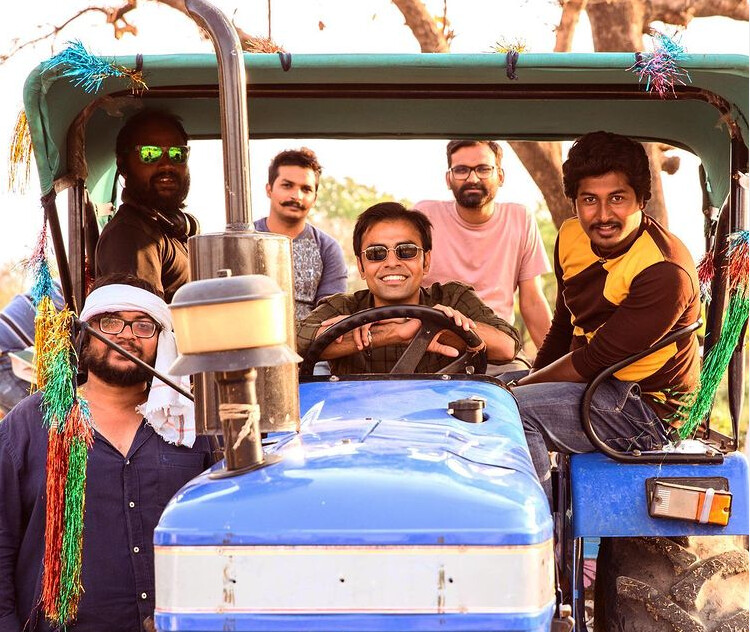
Dealing With Different Pressures
Coming from a family of civil engineers like his father, uncles and cousins, the expectation of Jitendra was what one would expect of any IIT-graduate — obtaining a stable and well-paying job. Although his parents had their reservations about acting, they were interestingly quite happy for him to apply to institutions like NSD and FTII.
“What they were not okay with was my decision to come back to Mumbai. They were unhappy that I was leaving a good job to take another shot at acting. I come from a family of civil engineers. They had different plans for me. My father and I argued for a couple of days. Out of spite, we didn’t eat for two days, but eventually, hunger took over (laughs),” he recalls.
Seeing that Jitendra was unwilling to compromise on his dreams of acting, his parents issued a condition that they would support him financially for a couple of years till he made his mark. Failure to make a mark, they said, meant leaving acting and finding a proper job at a construction company. But understanding the vagaries of this acting profession, particularly in its early stages, he knew that these conditions wouldn’t work for him.
“Instead, I told them not to send money and that I will do a part-time job along with acting gigs to support myself. I didn’t agree to their deal and eventually, my parents came around. During my initial days in Mumbai, I took physics classes at different coaching institutes preparing students for their JEE exam to earn a livelihood. I took these classes for two years until 2015. After TVF Pitchers, my career began its upward trajectory,” he recalls.
Learning from the best in the biz
During his time in the industry, Jitendra has been fortunate to work with some of the best in the business like Neena Gupta (Panchayat and Shubh Mangal Zyada Savdhan), Raghuvir Yadav (Panchayat), Ayushmann Khurana (Shubh Mangal Zyada Savdhan), Gajraj Rao, Vipin Sharma (Gon Kesh) and Shweta Tripathi (Gon Kesh).
“I grew up watching some of these actors like Neena ma’am and Raghuvir sir and learned a lot from their experiences and stories about how they prepare for their characters, and the craft in general. Actors like them, including Gajraj sir and Ayushmann, are amazing hustlers who have adapted to the times irrespective of the content or format. They have been part of commercial and art-house films as well. What they have taught me was that I should always be available for quality content no matter the format. They imparted the value of adaptation. For example, OTT content in the digital space was very different for the likes of Neena ji and Raghuvir sir since they had acted in larger than life commercial films in the past as well,” he says.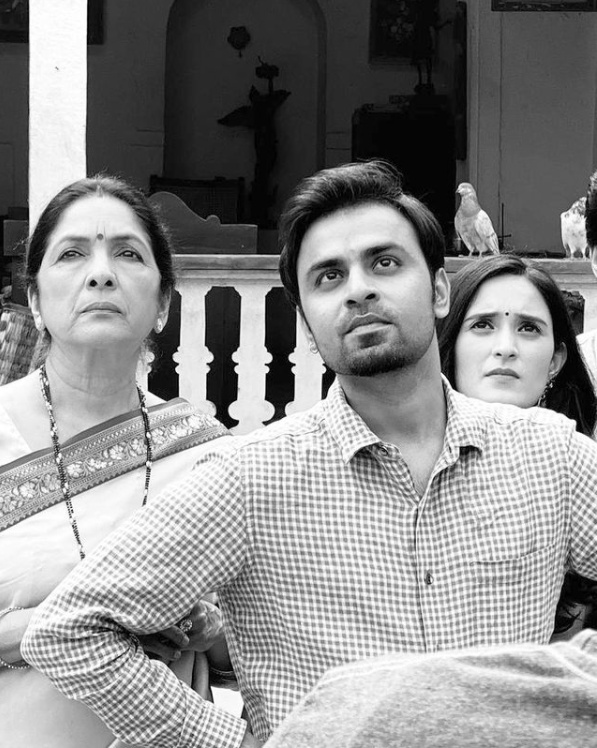
These actors are now integral members of the online digital space. Some of the veteran actors who are now thriving in this space, Jitendra argues, had to give up some luxuries to adapt to these new formats, but what they did was quality content.
“Seeing how they adapted has given me the blueprint to be available for those changes. Also, when I am doing a scene with these amazing actors, what struck me most was the energy they imparted on set. I strive to be the actor who gives out good energy to his fellow actors on screen. They act from the heart and with so much energy, which I also have to reciprocate,” he says.
Meanwhile, the characters that we have seen Jitendra play are your ‘everyday man’, usually set in the Hindi heartland. But he argues that while all his characters are very relatable, they are very different in their own way.
“The characters I have done seem relatable to the common man. That’s why my roles may look similar, but they are different in terms of their emotional make up, their relationship with other characters, social context and everything else. In Panchayat, for example, I play the role of an engineering graduate who joins as a Panchayat secretary in a remote village Phulera of Uttar Pradesh due to lack of better job options. My character, Abhishek, has no ambition of improving the lives of the villagers or any real motivation to work, but wants to clear CAT, get an MBA and obtain a typical 9 to 5 job in the city. But in TVF Pitchers, my character Jitu wants to make it big in the startup world and doesn’t want a typical 9 to 5 job. In Shubh Mangal Zyada Saavdhan, it’s the story of my character, Aman Tripathi, a gay man and his partner, Kartik who have trouble convincing the former’s parents of their relationship,” he says.
But what you see in these roles, particularly in shows like Pitchers or the Kota Factory, are characters from social contexts that many like Jitendra and fellow risk-takers at IIT come from. There is an inherent relatability to these characters we never saw in some of the major Bollywood blockbusters of the 1990s or noughties. In many ways, the work Jitendra has done so far represents a lot of the change we see in the content put out by filmmakers today.
So, what does the future hold for Jitendra? “I just want to do good stories and nothing else. If they are coming from directors that I really want to work with then that’s the icing on the cake. But it’s the story that matters for me,” he says.
(Edited by Yoshita Rao)
Like this story? Or have something to share? Write to us: [email protected], or connect with us on Facebook and Twitter.
This story made me
- 97
- 121
- 89
- 167
Tell Us More
We bring stories straight from the heart of India, to inspire millions and create a wave of impact. Our positive movement is growing bigger everyday, and we would love for you to join it.
Please contribute whatever you can, every little penny helps our team in bringing you more stories that support dreams and spread hope.








